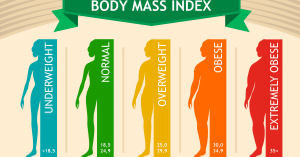Are you facing difficulty falling asleep? Did you gain excessive weight due to the late-night binge sessions during the Covid-19 pandemic?
The world has undergone a paradigm shift in health and lifestyle patterns during the Covid-19 pandemic. You must have had a lot of movie nights and endless bingeing sessions with family or while you were isolated during the lockdown. As a result, you gained multiple inches and your favourite pants don’t fit you any longer, isn’t it?
You may have blamed it all on the junk food and other unhealthy food options and the sedentary lifestyle you chose during that time. You reduced the amount and frequency of fast food and yet, there has been no prominent change in your weight.
Why? Can your disorganised sleep pattern be the underlying reason for the weight gain? Read on to know more about the relationship between sleep and weight loss!!
Let’s get back to the basics and know why sleep is important for better well-being.
Sleep is the state of rest that helps your body and mind take the much-needed break after the day’s work. It results in reduced response to external impulses. Sleep consists of a naturally recurring consciousness of the mind and body. There’s a wide array of body functions that are taking place while you are fast asleep.
Let’s take you through some interesting facts!
What happens when you’re asleep?
Your body loves you when you get a night of adequate sleep. Here’s why it does so!
- There’s a more efficient thought process and increased memory capacity
- Organises new information, enhances creative thinking and cognition
- Regulates hunger by increasing the secretion of Leptin (the hormone that induces fullness or satiety) and reduces the secretion of Ghrelin (the hormone that induces hunger)
- Clearance of harmful toxins from the brain
- The predominance of good bacteria in the gut, thereby reducing inflammation and optimising gut health.
- Serotonin (happy hormone) is released and reduces your risk for anxiety and depression
As we’ve seen the beneficial effects of sleep, let’s take a step ahead and look at the detrimental effects sleeplessness has on weight.
The Most Wonderful Clock
There’s something known as a body clock (Circadian rhythm) that influences the biochemical functions in your body. Your body is sensitive to light and darkness around you. At sunrise, your body secretes hormones that signal your brain to wake up and brace yourself for the day ahead. Similarly, as the sun goes down, a hormone called melatonin is secreted by your brain that signals your body to rest, and that’s why you feel sleepy and hit the bed.
Now, what happens when you don’t obey these signs given by your body?
Insomnia and the havoc it creates!
If you are casual about your sleep cycle and stay up in the night for far too long, the production of melatonin eventually decreases. Then, you may find a decline in your sleep pattern and sleep quality too. That’s how insomnia sets in.
The vicious cycle of falling asleep late, bad sleep quality, grogginess on waking up and disturbed gut health comes into the picture.
Research suggests that sleeping for fewer than 7 hours each night may increase the risk of weight gain and obesity. Also, a lack of sleep may increase the production of ghrelin, the hunger hormone, that increases your appetite causing you to overeat and thereby, increases your desire to eat more high calorie foods. You may also experience low energy expenditure that exacerbates the situation further. Furthermore, as your incidence of eating high calorie food increases, your body’s sensitivity to insulin reduces, causing insulin resistance. When your muscle cells do not adequately respond to insulin, the excessive glucose, that is formed from carbohydrate metabolism, is converted to fat cells. Thus, the fat deposition in your body increases leading to an increased Body Mass Index (BMI) and altered body composition.
So, how do you get your sleep cycle right?
Habit change is the key to getting your sleep cycle on track and bouncing back to a healthy lifestyle pattern. Take small consistent steps each day by going to bed 30 minutes earlier than your usual time, until you reach a set point. Also, expose yourself to sunlight for a minimum of 15-20 minutes every day, for it enhances the production of melatonin by your brain.
Now that you’re aware of the remarkable effects sleep has on your body, would you still ignore your body clock and go on a late-night spree?!
At MediFit, we have pioneered the delivery of Medical Weight Loss programs through a customised algorithm. To begin your medical weight loss program, click here (hyperlink)
Watch out this space for more incredible content on weight loss and various lifestyle disorders. Stay tuned folks!




